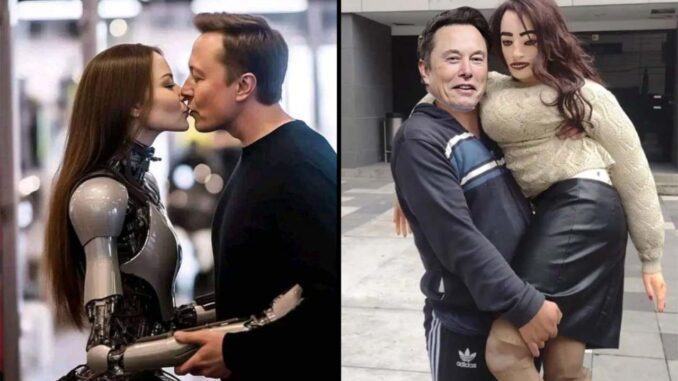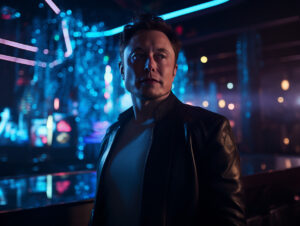
Vivian Jenna Wilson, the transgender daughter of Elon Musk, said Thursday in her first interview that he was an absent father who was cruel to her as a child for being queer and feminine.
Wilson, 20, in an exclusive interview with NBC News, responded to comments Musk made Monday about her and her transgender identity. On social media and in an interview posted online, Musk said she was “not a girl” and was figuratively “dead,” and he implied that he had been “tricked” into authoring trans-related medical treatment for her when she was 16. Wilson said that Musk hadn’t been tricked and that, after initially having hesitated, he knew what he was doing when he agreed to her treatment, which required consent from her parents.
Musk’s recent statements crossed a line, she said.
“I think he was under the assumption that I wasn’t going to say anything and I would just let this go unchallenged,” Wilson said in a phone interview. “Which I’m not going to do, because if you’re going to lie about me, like, blatantly to an audience of millions, I’m not just gonna let that slide.”
Wilson said that, for as long as she could remember, Musk hasn’t been a supportive father. She said he was rarely present in her life, leaving her and her siblings to be cared for by their mother or by nannies even though Musk had joint custody, and she said Musk berated her when he was present.
“He was cold,” she said. “He’s very quick to anger. He is uncaring and narcissistic.”
Wilson said that, when she was a child, Musk would harass her for exhibiting feminine traits and pressure her to appear more masculine, including by pushing her to deepen her voice as early as elementary school.
“I was in fourth grade. We went on this road trip that I didn’t know was actually just an advertisement for one of the cars — I don’t remember which one — and he was constantly yelling at me viciously because my voice was too high,” she said. “It was cruel.”

Musk didn’t respond to a request for comment.
Wilson and her twin brother were born to Musk’s first wife, author Justine Musk. The couple divorced in 2008, and Wilson said her parents shared custody between their homes in the Los Angeles area.
Musk, 53, is among the wealthiest people in the world through his stakes in Tesla, where he’s CEO, and in SpaceX, which he founded. He has also become a significant political figure, having endorsed former President Donald Trump this month for another term in the White House. Musk has 12 children, including Wilson.
Now a college student studying languages, Wilson has never been granted an interview before and has largely stayed out of public view. She did, however, attract attention in 2022 when she sought court approval in California to change her name and, in the process, denounced her father.
“I no longer live with or wish to be related to my biological father in any way, shape or form,” she said in the court filing.
She told NBC News that at the time, she was surprised by the media attention to the court filing, which she submitted when she was 18. She said in the interview that she stands by what she wrote, though she said she might have tried to be more eloquent had she known the coverage it would get.
Wilson said that she hadn’t spoken to Musk in about four years and that she refused to be defined by him.
“I would like to emphasize one thing: I am an adult. I am 20 years old. I am not a child,” she said. “My life should be defined by my own choices.”
Musk threw a spotlight on Wilson on Monday by speaking about their relationship in a video interview with psychologist and conservative commentator Jordan Peterson streamed live on X, saying he didn’t support Wilson’s gender identity.
“I lost my son, essentially,” Musk said. He used Wilson’s birth name, also known as a deadname for transgender people, and said she was “dead, killed by the woke mind virus.”
And in a post on X, Musk said Monday that Wilson was “born gay and slightly autistic” and that, at age 4, she fits certain gay stereotypes, such as loving musicals and using the exclamation “fabulous!” to describe certain clothing. Wilson told NBC News that the anecdotes aren’t true, though she said she did act stereotypically feminine in other ways as a child.
Wilson also addressed Musk’s recent comments in a series of posts Thursday on the social media app Threads.
“He doesn’t know what I was like as a child because he quite simply wasn’t there,” she wrote. “And in the little time that he was I was relentlessly harassed for my femininity and queerness.”
“I’ve been reduced to a happy little stereotype,” she continued. “I think that says a lot about how he views queer people and children in general.”
